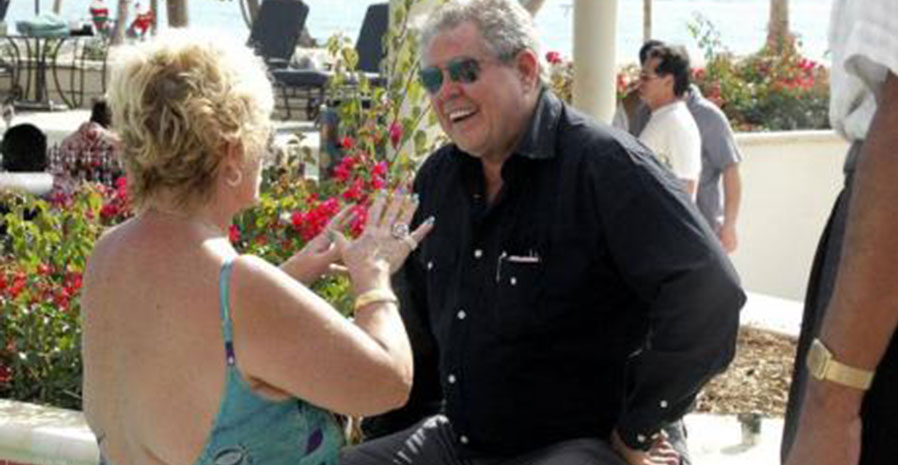A Gleaner December 21, 2005 report quotes then Prime Minister P.J. Patterson saying that for "... the past 14 years, I have been fighting an unsuccessful battle to get the law amended so that we can have in-bond shopping facilities when we arrive at the airport.
I am pleased to tell you that Cabinet has approved the draft legislation. It will be discussed in Parliament and I hope it goes through before I leave." Patterson expected the change to become a reality before he demitted office in 2006.
In-bond Merchants Association president at the time, Kumar Samtani, felt Jamaica's airports would improve. "In-bond duty-free shopping is," he said, "becoming more popular in the Caribbean and the rest of the world and, as such, several countries are going towards that business model, especially in their airports." That was five years ago.
The Financial Gleaner, December 24, 2010 reports, "The Tourist (Duty-Free) Shopping System Act was amended earlier this year to allow incoming travelers—air and sea—access to purchase duty-free items before reaching Customs. The legislation became effective on December 15." Including 14 years of Prime Minister Patterson's attempts to amend the legislation, it takes two decades to implement a policy shift thought advantageous and necessary.
Did In-bond merchants have no clout? Is our parliamentary legal draughtsman overwhelmed? Can we seriously promote growth and development in such an environment? Perhaps today we might cheer up. We're finding a remedy, as Financial Gleaner headline of December 24 screams: "Heavy-weights to advise Bartlett."
The advisers are Maurice Facey, chairman and chief executive officer of Jamaica Property Company Limited; Miguel Fluxa, chairman of Iberostar hotel; Daniel Grizzle, managing director of Charela Inn; Hugh Hart, attorney-at-law; Tony Hart, chairman of the Hart Group of Companies; Karl Hendrickson, chairman of The Courtleigh Hotel and Suites; John Issa, chairman of SuperClubs; William McConnell, group managing director of Lascelles deMercado and Company; and Gordon 'Butch' Stewart, chairman of Sandals Resorts International.
 Sandals Chairman Gordon 'Butch' Stewart in discussion with a guest at one of his Sandals Resorts hotels. Stewart, one of the chosen advisers to Tourism Minister Edmund Bartlett, revolutionised Jamaica’s tourism market with his all-inclusive hotel operations. Long-term policy
Sandals Chairman Gordon 'Butch' Stewart in discussion with a guest at one of his Sandals Resorts hotels. Stewart, one of the chosen advisers to Tourism Minister Edmund Bartlett, revolutionised Jamaica’s tourism market with his all-inclusive hotel operations. Long-term policy
Minister Bartlett, the report continues, said the council's job "will be the mapping and implementation of a long-term policy direction for the tourism sector, encompassing global, regional and local developments, and forging appropriate partner-ships and strategic alliances". He says the group represents "a blend of the best minds in the tourism, business and legal fraternities, which will move Jamaica's tourism industry to higher heights".
He is correct. He has indeed put together the best minds in the existing tourism business. Blend, however, is an altogether different proposition. Perhaps if we place emphasis on existing tourism business, we might begin to realise this is by no means all the expertise our minister needs. Is there, too, a journalistic misquote of the minister's statement? Surely this council will not manage 'implementation' of the policies it advocates.
It is interesting to consider the 'blend', the range of expertise and interests, as well as conflicts and downside of the tourism business. Jamaican tourism depends fundamentally, on its physical and, whether some wish to believe it or not, its societal environment.
I shall assert and take it as self-evident that this council should benefit from the presence of an environmentalist, coastal and wetlands specialist, economist and sociologist. These specialisations can be robustly justified.
But let's move on to conflicts that need attention. Intensive and environmentally hostile exploitation of our coastal areas provides a long-term negative to the industry. It’s like killing the goose.
From a societal standpoint also, we need to think about access to our beaches for locals, livelihood of fisherfolk, and so on. None of this is meant as a dampener on tourism development—merely prudent long-run development. No end of adverts promoting 'look after the tourist' like we used to 'look after the banana' will pay as lucrative dividends as the affected population's genuine feel for their livelihood's stake in the tourism enterprise—rather than a stake in its heart!
A continuing problem is the dependent, usually poor and under-employed squatter and/or migratory population attracted to our tourism centres. Whereas London and New York accommodate hordes of tourists who are neither harassed, nor generate unsustainable pressure on city services, in our case, merely a few cruise ships in harbour have the capacity to overwhelm. This we need to address.
In a plea for diversity, imagine a council in the United States consisting of the moguls of IBM and other mainframe computer 'titans and professionals' chosen to advise on information and communications technology development.
When would we have had the graphical user interface, mouse, iPod, Google and a host of other developments without which, today, we seemingly cannot live?
Cultural tourism
There is room for cultural, nature, medical and history-based tourism in Jamaica—these are greenfields, tremendous resources mostly ignored. Experience and knowledge embodied in Minister Bartlett's council of heavyweights is wonderful. Diversity, however, potentially brings new vision. Mystic Mountain Tour
Mystic Mountain Tour
Stewart's Sandals fashioned a product no one knew—it was new vision—anecdotal evidence suggests some were doubtful about the connotations of the very name Sandals!
Steve Jobs doesn't canvass existing computer users to determine what product they want him to build; he actually creates entirely new wants to fill a void no one knew existed. The ubiquitous mountain bike results from enthusiasts tinkering, not existing bike manufacturers brainstorming. So intriguing are pathways to innovation that they can be neither set, nor catalogued by known or easily defined rules.
While success and experience are necessary, in business innovation, core competence, strategic intent and fresh vision are all critical. Shall we await others' exploitation of similar resources before we realise it, and then play the 'me too-ism' catch-up game everyone can play in the blinding clarity of hindsight?
Comments:
Concerned Citizen: Thank you Mr Persaud for not only recognizing but writing such a potent piece on the need for more environment consultation in our tourist industry. Our Minister and his so called 'heavyweights' need to know that killing our wetlands and greenfields to build monolilths passing as holtels is not sustainable. Jamaica is ironically advertised as the mountains, the beaches, the culture, the people, yet the tourists are hurried shuttled to these all inclusives where they are locked away from what they see in the ads. Sustainable tourism is not an issue for debate it is a must.
My greatest pleasure is to go hiking in the mountains, surrounded by flora, fauna, the sound of birds and great sprawling trees. When I get tired I know that the river is near, there my fellow hikers and I will stop, hastily change into our swimming gear and jump in. Can I tell you, water that is crystal clear, cool even sometimes cold as ice, beats your skin clean. This is the Jamaica that the heavyweights need to think about.
Crooks_d: Tourists don't care about some uncaring committee created by some government minister. What they surely care about is security, safety, and peace of mind. We need to stop this habit of denying whenever we have problems in the sector. In other words, we must all be honest in what we do. Can an island with 1600 murders meet these expectations?
At the same time heads up to Butch Stewart. You certainly have a good product in the name Sandals. All those who come to your hotels not only have great memories but would continue coming back every time. I can't say this for the others. You seem to have visitor excellence down to an artform. Keep up the good work Sandals. One day all inclusives will be like yours. Can you share your expertise with others on what hardworking tourist coming to Jamaica look for?

